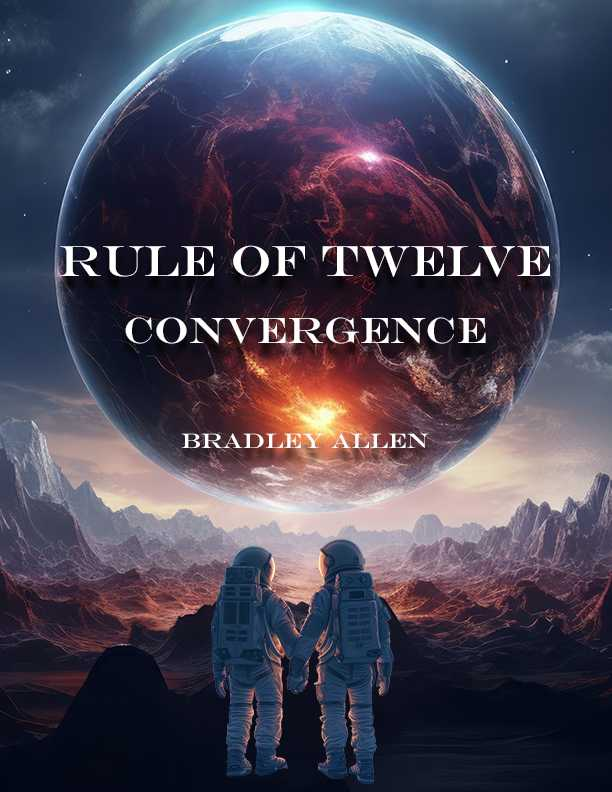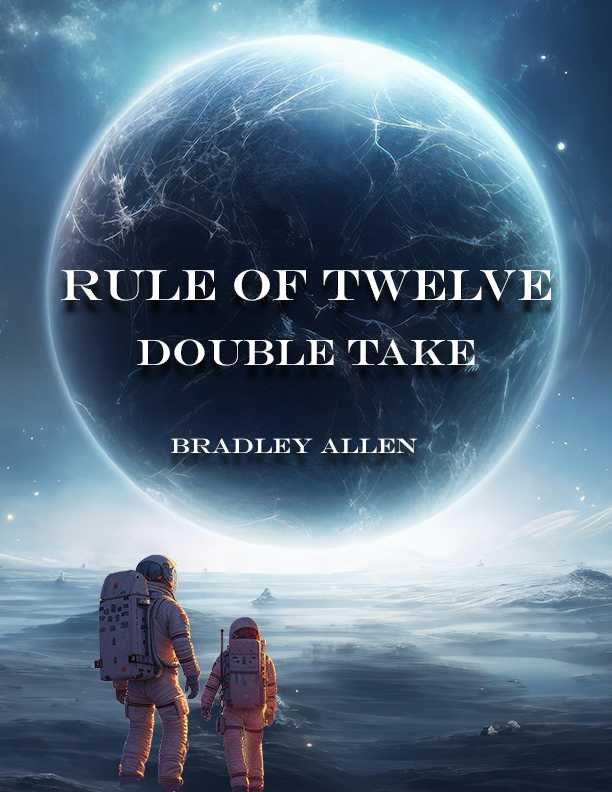Marr laughed. “To be honest, I was just making conversation. My mind is somewhere else.”
“Go on.”
“I was thinking of us. I was wondering if time together changes things. What if this goes wrong? What if there is bad blood?”
“How so?”
“If things unfold and don’t work out?”
“Nothing is certain, but I think that is unlikely.”
“Why?”
“From what I can determine, we’ve got the three Cs right.”
Marr grinned. “Did Bazzer share them with you?”
“He did.”
“Mentor?”
“Teacher.”
“What did she teach you about them?”
“Did you just deflect?”
Dukk grinned.
“Ok then, since I started the conversation.”
Dukk laughed.

“So, to succeed, companionship must involve attention to the three Cs,” Marr said. “They are chemistry, cognitive alignment, and context. Without attention to these three aspects, companionship falters and drains both parties’ energy. Chemistry is obvious, but often neglected. For it to work, both must truly lust for each other. That doesn’t always happen. Perhaps there is a degree of desperation, perhaps there is something about the intimacy that is new and exciting, perhaps their ego is telling them they will look good together. Unfortunately, a compromise here will be fatal later. While perhaps neglected, chemistry is the easiest to get right. The test is simple. One simply needs to ask if they are totally attracted to this person when they are at their worst, physically? That lust must be there when they meet at the end of an exhausting day, stressed and preoccupied. If that happens the chemistry is solid. If they are only physically attracted to them when they are at their best, things aren’t how they should be. It’s true that over time one might get a little too comfortable and take less care of oneself than one should. Nevertheless, even as one grows old, becomes less firm, gains or loses hair and gets a little more rounded, the core of the beauty will remain and that’s what creates the chemistry. Without the chemistry they are just pretending.”
Marr paused.
“Yep, that is how I know it,” Dukk said. “What of Cognitive alignment?”

“Cognitive alignment is crucial for longevity, but not so important in casual companionship. Cognitive alignment includes aspects of personality and how we interact with the world. For longevity, companions need to have alignment in sense of humour, similar levels of emotional intelligence, similar core values, some similar interests, and a degree of alignment of ideologies and other life philosophies. Sense of humour is the most important of all these aspects and is likely to be aligned from the start. This is, of course, if one is being honest and not just letting primal urges drive laughter even when they don’t get the other person’s humour. Life is hard but it will become unbearable if one is not sharing laughter at oneself and the world. A similar level of emotional intelligence is important, so they relate properly. Emotional intelligence is something one grows. It’s not fixed, but companionship must start at a similar level. This is so that one isn’t having to educate or bring the other person along. Having a teacher-and-student dynamic can be fun in aspects of a companionship, but it gets tiresome if it’s one-sided all the time. Being the basis of decisions, and beliefs and behaviours, core values will shape who one is and how one grows. A big gap here will get in the way of the companionship developing properly. Similar interests create opportunities for shared experiences. It’s during those shared experiences that laughter is found, and learning takes place. Finally, having some degree of alignment in ideologies and other life philosophies ensures violence doesn’t break out on the first encounter. Alignment here ensures companions have things to share that they are passionate about, but not so different that they simply have nothing to engage on together.
“Sound,” Dukk commented. “And context?”

“Context is the facts that exist at the start of a companionship. These will include habits and routines, physical condition, mental condition, commitments to others, financial flexibility, baggage, and skills in managing complexity. There is always context, no matter the stage of life. This context will both enable and get in the way of a strong and lasting companionship. Lack of flexibility in many of these aspects will prevent meeting the right companion. When a meeting does take place, inflexibility makes it harder to experience each other fully. It just isn’t realistic that one will be able to keep everything the same after they meet someone. They must make changes. They might need to spend less time with those they care about, to make room for the new person. They might need to change some of their routines and habits to fit better with the other’s availability. They might need to invite them into their existing activities and share them with them. They might need to work on their physical condition so that they can have better sex. They might need to seek help to remove more of the baggage. They might need to reduce their financial security somewhat, so that they have the means to engage fully in new and shared experiences. An unwillingness to share and integrate new people into existing routines, experiences, and friendships keeps others out.”
“That is what I understand them to be.”
“Excellent. What do you think is the most important?” Marr asked.

“Of the three Cs, while all are necessary, cognitive alignment is the most important. Having the ability to connect with each other on similar emotional and intellectual levels enables us to learn about each other’s needs, our individual contexts, and is required to create the new and shared conditions necessary for rich and lasting companionship.”
“So, you think that is the case?”
“As far as I can determine.”
“And what of chemistry?”
Dukk laughed. “That isn’t a serious question. Considering what we’ve been through over the last month, clearly, we’ve seen each other at our worst.”
Marr laughed. “Yes, true.”
Excerpt from Rule of Twelve, Book 2 - Convergence, Chapter 7






















